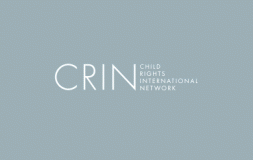Submitted by crinadmin on
What is the UN Office on Drugs and Crime (UNODC)? UNODC assists Member States to take action against illicit drugs, crime and terrorism. In the Millennium Declaration, Member States also resolved to intensify efforts to counter transnational crime, drugs and international terrorism. Activities of UNODC More: http://www.unodc.org/unodc/en/about.html The Global Youth Network UNODC runs a Global Youth Network project to increase youth involvement with the international community in developing drug abuse prevention policies and programmes. The network has three main objectives: To join your regional youth network, go to: http://www.unodc.org/youthnet/youthnet_regional_networks.html The United Nations Office on Drugs and Crime created the Guidelines on Justice for Child Victims and Witnesses of Crime with UNICEF and the International Bureau for Children’s Rights. They were developed to help make sure that children who have been harmed by crime and children who have seen others harmed are protected and treated fairly when they say what happened to them in a court of law. Human Trafficking The GPAT's' overarching objective is to bring to the foreground the involvement of organised criminal groups in human trafficking and to promote the development of effective criminal justice-related responses. Related links Drugs Resources for children
The United Nations Office on Drugs and Crime (UNODC) is a global leader in the fight against illicit drugs and international crime. Its headquarters are in Vienna and it has 20 field offices as well as a liaison offices in New York and Brussels.
UNODC and children
Regional youth networks:
Crime
UNODC designed the Global Programme against Trafficking in Human Beings (GPAT) in collaboration with the United Nations Interregional Crime and Justice Research Institute (UNICRI) and launched in March 1999. GPAT assists Member States to combat trafficking in human beings. It highlights the involvement of organised criminal groups in human trafficking and promotes the development of effective ways of cracking down on perpetrators.

